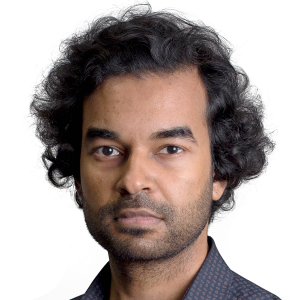Soccer fans warm to Ruhr romantics

Roula Khalaf, Editor of the FT, selects her favourite stories in this weekly newsletter.
John Maynard Keynes captured the internationalism of life before the first world war by writing about the freedom of a Londoner to “order by telephone, sipping his morning tea in bed, the various products of the whole earth”. If he were still available to summarise modern globalisation, he might point to the Uefa Champions League. The best football teams in Europe, each manned by players from across and far beyond the continent, compete against each other as though national borders were something kitsch, like telegrams and Walkmans.
Their owners are American tycoons, Russian oligarchs and dynastic Arabs. Their audience, which for games such as Tuesday’s between Manchester United and Real Madrid numbers in the hundreds of millions, are as likely to be watching from Africa or Asia as Europe. When Real’s manager, José Mourinho, claimed on the eve of the match that the “world will stop to watch”, he was not exaggerating by very much.
The elite tier of football has become post-modernity incarnate, a kind of Davos on grass. In the sporting kingdom, only Formula One has anything to rival it. Yet like most forms of globalisation, it jars with some people. They hanker after a grittier and more local experience – football with a human face. After all, the game emerged as the recreation of choice for the new industrial working classes in the 19th century.
This is why one of the big stories of European football in recent seasons has been the resurgence of Borussia Dortmund. After a brush with financial oblivion less than a decade ago, the German club has come to define itself against what many see as the plutocratic rootlessness of modern football.

With fans exerting enormous control over the board, the down-to-earth culture of the Ruhr infuses almost every decision the club makes. Revenue is forgone to hold ticket prices down (helping Dortmund to rival Barcelona for the highest average attendance in Europe, at about 80,000 a match). In an era of all-seater stadiums, standing areas are preserved in the cacophonous Westfalenstadion. The squad’s practice sessions are open for fans to observe in a way that would be unthinkable at many clubs in England. Spectacular transfer fees and salaries are generally eschewed; homegrown talent is prized.
And this purism has not come at the cost of success on the pitch. Dortmund have won the Bundesliga twice in a row, fending off the imperial giants of Bayern Munich. When they beat the Abu Dhabi-owned Manchester City in the Champions League this season, it was held up as a moral victory as much as a sporting one. The gilded play things of a billionaire sheikh had succumbed to a club whose motto is “Echte Liebe” (“real love”).
On Tuesday, Dortmund progressed with ease to the quarter-finals of the Champions League. Even those who find the club’s romantic righteousness a bit grating would be moved to see them win the tournament. This year’s final takes place in London, where the arrival of Roman Abramovich a decade ago to buy Chelsea inaugurated the era of football as the billionaire’s game.
…
Special treatment
One thing even Dortmund cannot achieve is to lure Mr Mourinho once he leaves Madrid this summer. The most sought-after coach in world football, whose presence at a club is a guarantee of trophies (and trouble), does not disguise his determination to return to England, where he took Chelsea to glory before falling out with Mr Abramovich. He adored London and the press have whispered about supposed house-hunting visits in recent months.
Indeed, the only people keener on his return than Mr Mourinho (and the estate agents of Belgravia) are the British media. It is hard to overstate the electrifying impact this endlessly quotable man had on a nation governed by headlines. Some of his phrases – “special one” to describe himself, “parking the bus” to denote defensive football – have become part of the language. Most sporting icons are outstanding at their particular craft but ordinary in every other way, which is why interviews with tennis stars are so boring. Mr Mourinho is an exception.
Let’s face it, there is a chance that he does not read the Financial Times. If he does, however, let me remind him as he pines for a return to the Premier League that there is another, historically much grander club in London. Manager in trouble. Change seemingly afoot. Name of Arsenal. There are some gorgeous houses in Hampstead, José.
Comments